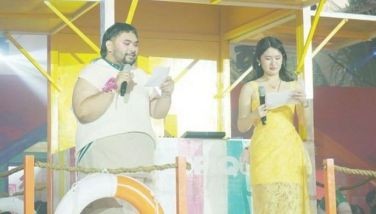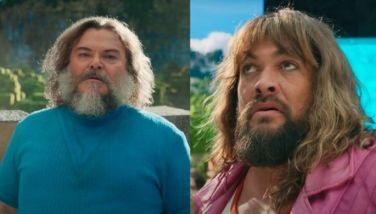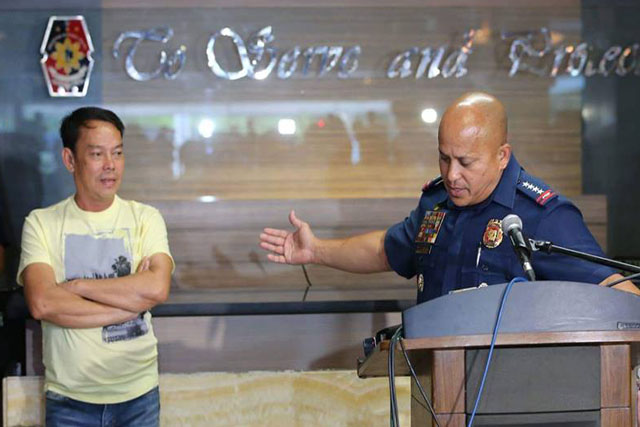Cinemalaya 2014 Watch: Mariquina by Milo Sogueco
As I am writing this, the rain hasn’t stop pouring in intervals. There is supposed to be a storm this week, another big one, and if the way it has been raining is anything to go by, then it is probably going to happen. The rain has a funny way of making traffic in Manila even worse than the hell it already is, so that even short distances are a pain. It’s unfortunate, then, that this is the week the Cinemalaya films are out in full force. I don’t have any numbers to back the idea that the rain will put people off attending, but I suspect that as the week progresses, attendance won’t be unaffected.
Still, there was a crowd at CCP last night, a not-at-all-shabby turnout, and as horrid as the traffic was, I managed to squarely anticipate it and make it to a showing of Mariquina on time. Here’s hoping it’s the same for everyone else braving the weather. And after seeing the film, it also occurs to me to hope that Marikina will be all right.
Mariquina is not really about Marikina. It is about Imelda, the daughter of a famed shoemaker in the Marikina of old, who has to come to terms with the fact that her father has committed suicide and that she has to find his body a pair of shoes worthy of his life’s work. The film moves back and forth in time, showing the present Imelda (Mylene Dizon) as her stressful work life at a clothing factory is interrupted when the news of her father reaches her, and the young Imelda (Barbie Forteza). At first Imelda tries to carry on at work, in part because they are under a lot of pressure from their recent buyer, but eventually has to succumb to the memory of her father Romeo (Ricky Davao) and carry out the proper arrangements.
The premise is lovely and intriguing, and the beginning does a good enough job of reaching back in time and presenting us with a Marikina in its shoemaking heyday — of which Romeo Guevarra was a master. Their wealth is not so much riches but an abundance of work.
“We shared the work,” Imelda’s narration tells us. “When we had a big order, we would even take it to our neighbours.” It’s a very zoned-in view of one particular trade in Marikina, albeit its most famous one, with Imelda’s father at the helm of the craft in a thriving factory. The problem, though, with saying it is a film about Marikina is that there isn’t much to feel about it even after watching the film. Marikina as a subject does not underperform, exactly, but scenes return time and again to shoe factory, river and shoe museum without saying anything in particular.
There’s a rather self-indulgent cameo by the “original” Imelda that served no purpose except for the audience to erupt in applause at the showing, given the Former First Lady was actually present. It may be true that culturally we cannot make a film concerning shoes without saying something about Imelda Marcos, but I think it took away the film’s power of irony. In fact, it points to what makes the film so underwhelming in the first place: it does not say much of anything. Imelda Guevarra, according to the film’s synopsis, is presented as “unlike her iconic namesake… indifferent to shoes.” This indifference extends to everything else, making her difficult to really sympathize with.
We are explicitly told, though, that her relationship with her father has not been great, and we are to spend the rest of the film figuring out why. The other thing we try to figure out is why the man would commit suicide. The film may imitate life a bit too much in this case, because we don’t ever figure out why, not as explicitly as we have been thrown the problems. Perhaps the greatest question that should have been addressed emotionally, however, is why Imelda rejects her father in the way she does.
To address their factory’s problems, Romeo finds capital through the business-savvy Tess (Bing Pimentel), who is presented almost immediately as a contender for Romeo’s affection over his wife Leonor (Che Ramos). Romeo never crosses the infidelity line, though Leonor bears a few slights, and chafes under her indefinite mother-wife role. And she decides to get out. The scene in which she decides to leave is well-rendered, on its own, but veers a bit into the realm of melodrama. The resulting scene, though, is arguably the best one in the film: Romeo’s response to his wife’s self-removal is to craft a shoe, the best looking one we will ever see. For the first time, the picture of who he is becomes very clear.
The rest of the film is largely the aftermath of Leonor’s departure, the main thing of it being Imelda’s inability to accept that her father did not do anything to cause her mother’s abandonment of them. His case is particularly damning when she sees him accept Tess’ advances. Later, Tess virtually moves in, sincere about the wish to be part of the family but kept at arm’s length and becoming a cause for more tension. Eventually, Imelda leaves her father in favour of her mother, resulting in their somewhat deteriorated relationship.
“You know I was young and naïve back then?” Imelda says to Tess, in the present day, post-burial. We are never given any solid reason why she should reject Romeo except for this, that she was young and she wanted her mother. It’s not outside the realm of reality, but it isn’t much of a payoff for watching an entire film of her staring at him accusingly. One might suppose that Romeo was too much a sapatero, too devoted to his work to be able to be a good husband and father, but the narrative does not seem to think so.
Was his great fault, then, accepting Tess, half-hearted though it was? Tess may have rushed it too much, asking if Imelda can’t call her mommy. But then, Tess provided for both of them, and sincerely cared for Imelda, and probably kept the business going longer than it could have. Was Imelda the problem, then? Maybe, but it’s not easy to tell through her single expression. She’s more temperament than character, and the emotional connection to her was lacking enough to make me doubt more than once that Mylene Dizon was actually playing the same character as Barbie Forteza. There just wasn’t enough to go on.
There is a certain kind of film that can present situations as questions without ever answering them, and perhaps Mariquina strove to be that kind of film. It had a bit more mood than it did substance, which made it feel long at times, and there is something flat about a tragicomedy (so it promoted itself as) that tips more onto the side of tragedy. Most of the comedy is from the search for the shoes that Imelda will bury her father in, a sort of bland statement about the rarity of shoemakers of Romeo’s calibre that does not really go anywhere. It’s somewhat overshadowed by Imelda’s repressed despondence, and the fact that she stays pretty immovable until the end.
In fact, there isn’t enough about Imelda that changes throughout to make the journey seem worthwhile. Not that the film did not have its moments, humorous or otherwise, but the real tragedy, is the fact that the great scenes in the film that make up its best moments also happen to be what makes it underwhelm as a whole. They are cobbled together without much purpose apart from making linear sense, and by the end we are left to pull the strings together ourselves and suppose that Romeo’s suicide was a direct result of the people in his life failing to tell him they loved him (which, if true, doesn’t seem to bother Imelda all that much).
I wanted to like Mariquina more than I did, because it had all the right ingredients: a compelling story, an important period and setting, dedicated mood pieces that could have been plaintively beautiful. In the end, though, instead of making a statement, it either made too many half-formed ones, or chose to say nothing at all. Marikina faded into the tragedy’s backdrop rather than a place of consequence to the story, and not even an allegorical connection to the characters could save it. Perhaps to someone who knows Marikina, the visuals will strike a chord, but to an outsider it was less moving. Maybe if Imelda herself felt more, I would have too.
- Latest
- Trending

























 Exclusive
Exclusive







